As dog owners, we often find ourselves wondering about our furry friend’s peculiar habits and health quirks. One such concern is the unpleasant smell that sometimes emanates from a dog’s mouth, particularly their saliva. While occasional odors are normal, persistently bad-smelling saliva can indicate underlying issues that deserve attention.
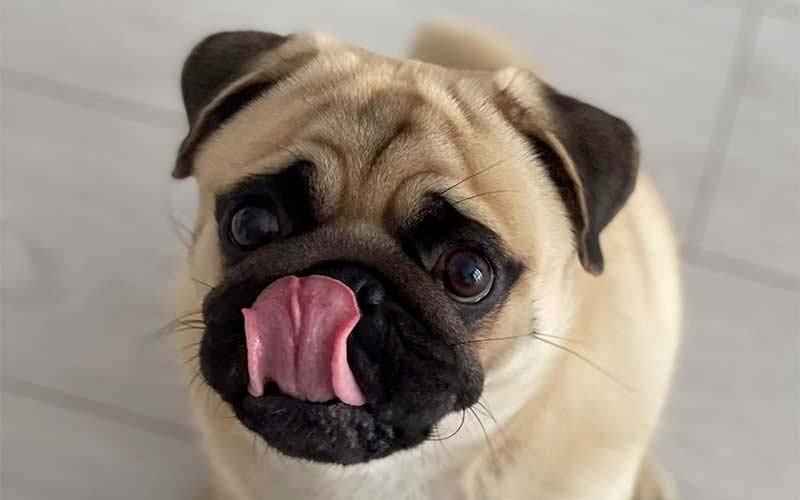
Bad-smelling saliva in dogs can stem from various causes, including poor oral hygiene, dental disease, dietary habits, or even systemic health problems like kidney or liver disease. Understanding these potential causes is vital to ensuring your dog’s health and comfort. In this article, we’ll explore the common reasons behind this issue, discuss when it might be a cause for concern, and provide practical solutions to keep your dog’s mouth fresh and healthy.
Let’s dive in and uncover why your dog’s saliva might smell and what you can do to address it.
1. The Role of Oral Hygiene in Dog Health
Good oral hygiene is crucial for a dog’s overall well-being, yet it is often overlooked. Poor oral care can lead to the accumulation of plaque—a sticky film of bacteria—that hardens into tartar over time. If left untreated, this can progress to gum disease, known as periodontal disease, which is one of the most common health issues in dogs.
How Oral Hygiene Affects Dogs’ Health
Plaque and tartar harbor harmful bacteria that not only damage teeth and gums but also release foul-smelling compounds. This bacterial activity is the primary culprit behind bad-smelling saliva. Beyond odor, untreated gum disease can lead to painful infections, tooth loss, and even systemic health problems as bacteria enter the bloodstream and affect vital organs like the heart, liver, and kidneys.
Statistics on Periodontal Disease in Dogs
Periodontal disease affects up to 80% of dogs by the age of three, according to the American Veterinary Medical Association (AVMA). Small-breed dogs are particularly susceptible because their teeth are often crowded, which creates an environment for bacteria to thrive. Regular dental care could prevent many of these cases, but studies suggest that only a fraction of pet owners brush their dog’s teeth regularly.
Link to Bad-Smelling Saliva
The bacteria associated with plaque and gum disease produce sulfur compounds, which are responsible for the unpleasant smell in a dog’s saliva. Without intervention, these bacteria can create a cycle of worsening oral health and more pronounced odor.
By addressing oral hygiene early, you not only improve your dog’s comfort and quality of life but also prevent the long-term consequences of neglecting dental care. Regular brushing, professional cleanings, and dental-friendly chews can significantly reduce the risk of plaque and tartar buildup.
This section sets the stage for understanding how poor oral hygiene can transform a manageable issue into a more serious health concern and why proactive care is essential.
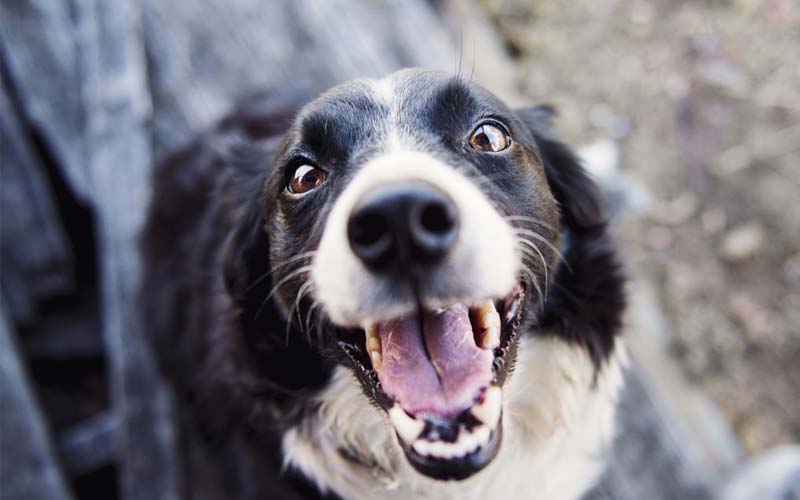
2. Common Causes of Foul-Smelling Saliva in Dogs
Bad-smelling saliva in dogs often signals an underlying issue, ranging from oral hygiene problems to systemic health conditions. Understanding the root causes can help pet owners address and prevent these unpleasant odors effectively.
Dental Issues
One of the most common culprits is poor dental health. Plaque and tartar buildup provide an ideal environment for bacteria to thrive, leading to periodontal disease. This condition not only causes bad breath but can also result in pain and discomfort.
Signs to Watch For:
- Bleeding gums or swollen, red gums.
- Reluctance to eat hard food or chew toys.
- Visible yellow or brown tartar deposits on teeth.
Regular dental care, such as brushing and professional cleanings, can prevent these problems.
Diet and Chewing Habits
A dog’s diet and chewing behavior significantly impact their oral health.
- Smelly Foods: Some foods, like fish-based diets, can leave lingering odors.
- Scavenging: Dogs that eat trash, dead animals, or other unsanitary items are prone to developing bad-smelling saliva.
- Unsafe Objects: Chewing on sticks, bones, or other sharp items can cause mouth injuries, creating a breeding ground for bacteria.
Providing a balanced diet and safe chew toys can minimize these risks.
Oral Infections or Injuries
Mouth wounds, abscesses, or infections can cause bacteria to accumulate and produce foul odors. Sometimes, foreign objects like splinters or food debris get lodged in the mouth, exacerbating the problem.
Key Indicators:
- Swelling in the mouth or face.
- Reluctance to eat or drink.
- Persistent pawing at the mouth.
Immediate veterinary attention is crucial to address infections or remove lodged items.
Underlying Medical Conditions
Systemic health problems can also contribute to bad-smelling saliva.
- Kidney Disease: A metallic or ammonia-like odor may result from the buildup of toxins in the bloodstream.
- Diabetes: Sweet or fruity-smelling breath can indicate diabetic ketoacidosis, a serious complication.
- Liver Disease: A musty or foul smell may accompany symptoms like jaundice or vomiting.
These conditions require prompt diagnosis and management by a veterinarian.
By identifying these common causes, pet owners can take proactive steps to improve their dog’s oral hygiene and overall health, ensuring a happier and more comfortable life for their furry companions.
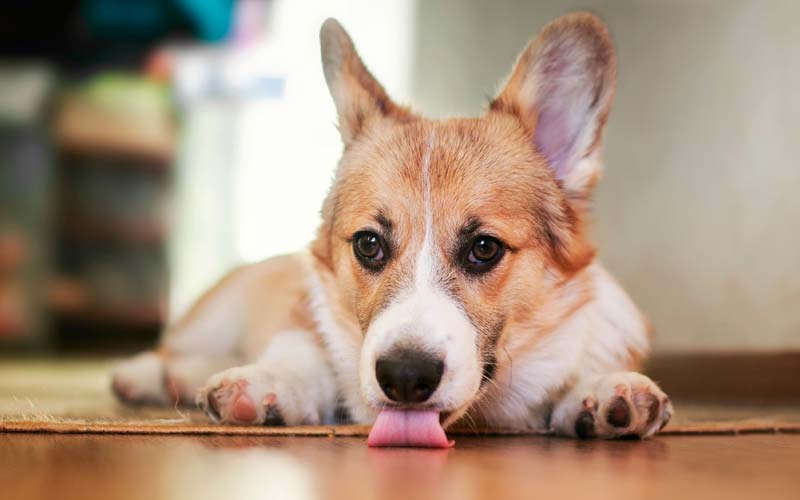
3. When to Be Concerned
While occasional bad smells from your dog’s mouth can be normal, persistent foul-smelling saliva often signals a more serious issue. Recognizing when to seek professional help can make a significant difference in your dog’s health.
Warning Signs to Watch For
If your dog displays any of the following symptoms alongside bad-smelling saliva, it’s time to take action:
- Persistent Bad Odor: An unrelenting smell, even after improving oral hygiene, may indicate infections or underlying health problems.
- Visible Sores or Swelling: Ulcers, inflamed gums, or any unusual growths in the mouth are red flags for potential oral disease or injury.
- Changes in Eating or Chewing Habits: Reluctance to eat, chewing on one side of the mouth, or avoiding hard foods can indicate pain or discomfort linked to oral issues.
- Other Symptoms: Excessive drooling, pawing at the mouth, or changes in energy levels may point to broader health concerns like systemic disease.
Call to Action
If these symptoms persist or worsen, don’t delay consulting a veterinarian. A professional examination can uncover the root cause, whether it’s a dental problem, an infection, or a systemic condition like kidney disease. Early intervention can prevent complications and improve your dog’s quality of life.
By acting promptly when these warning signs appear, you can help ensure your dog stays happy, healthy, and free of discomfort.
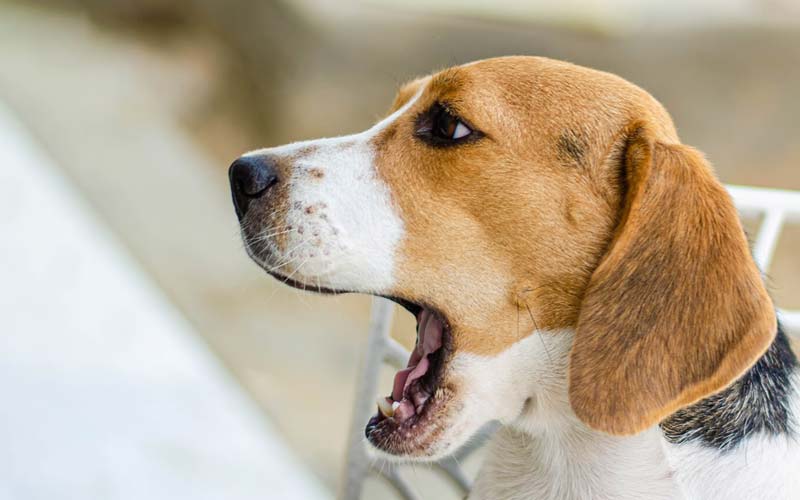
4. Solutions to Combat Bad-Smelling Saliva
Addressing bad-smelling saliva in dogs requires a combination of proper oral care, preventive measures, and addressing underlying issues. Here are practical steps to improve your dog’s oral health and eliminate foul odors.
1. Regular Dental Care
- Brushing Teeth: Use dog-safe toothpaste and a soft-bristled toothbrush to clean your dog’s teeth regularly. This helps remove plaque before it hardens into tartar.
- Dental Chews and Toys: Offer specially designed chews and toys that mechanically scrape plaque while your dog chews. These are both effective and enjoyable for your pet.
Consistency in dental care is key to preventing bad breath and maintaining oral health.
2. Routine Veterinary Exams
- Professional Cleanings: Regular dental cleanings performed by a veterinarian can remove tartar and address early signs of periodontal disease.
- Dental X-Rays: These can detect hidden problems, such as infections or tooth root abscesses, that might contribute to bad-smelling saliva.
Routine exams ensure early detection of oral and systemic issues.
3. Diet Adjustments
- Balanced Nutrition: Feed your dog a high-quality, nutrient-rich diet. Avoid foods that may contribute to bad breath, such as fish-based diets or those with artificial fillers.
- Restricted Access: Prevent your dog from scavenging through garbage or chewing on inappropriate objects that might introduce bacteria or foreign materials into their mouth.
Proper diet management can significantly improve oral health and reduce odor.
4. Hydration
Encourage your dog to drink plenty of fresh water daily. Water helps rinse away food particles and bacteria, keeping their mouth clean and reducing the buildup of odor-causing agents.
5. Using Specialized Products
- Enzymatic Toothpaste: These break down plaque and help control bacteria in your dog’s mouth.
- Dog Mouthwash: Additives designed for pets can be mixed into water to reduce bacteria and freshen breath.
- Dental Wipes: These are an easy alternative for cleaning your dog’s teeth if brushing isn’t feasible.
These products are widely available and effective at maintaining oral hygiene between cleanings.
By incorporating these solutions into your dog’s routine, you can combat bad-smelling saliva and prevent future dental issues. A combination of at-home care and professional support will ensure your pet enjoys a healthier, fresher mouth.
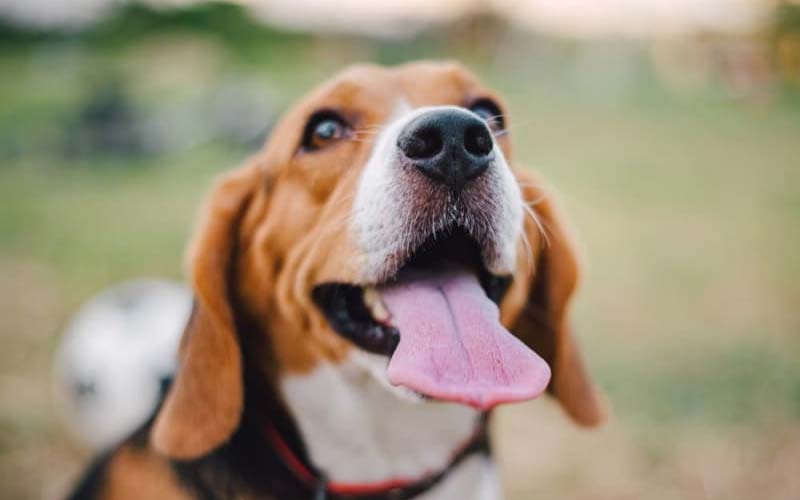
5. Preventive Tips for Fresh-Saliva Dogs
Maintaining a dog’s oral health requires consistent preventive measures that go beyond occasional cleaning. Implementing daily habits, regular veterinary checkups, and providing appropriate play and chew options are all part of ensuring your dog’s mouth stays fresh and free from odor.
Routine Habits: Establishing an Oral Care Routine
Creating and sticking to a daily oral care routine is vital for preventing bad-smelling saliva. Brushing your dog’s teeth a few times a week with pet-safe toothpaste helps remove plaque and prevents the buildup of tartar. For dogs that resist brushing, dental wipes or a soft cloth can be used as an alternative to clean the teeth and gums. Establishing this routine not only improves oral hygiene but also strengthens the bond between you and your pet.
Proactive Veterinary Visits
Routine veterinary exams are essential for catching early signs of dental disease or other oral issues before they progress. Your vet can perform professional cleanings and check for underlying health conditions that might contribute to bad breath or poor oral hygiene. Early intervention can prevent more severe dental diseases and help manage any systemic issues that could be causing bad-smelling saliva.
Play and Chew Toys: Safe Options to Naturally Clean Teeth
Play and chew toys are not just for fun—they also play a critical role in maintaining a dog’s dental health. Chew toys made of durable materials can help naturally remove plaque and stimulate saliva production, which aids in washing away food particles and bacteria. Look for toys approved by veterinarians and avoid ones that are too hard, as they can break teeth or cause oral damage. Additionally, specialized dental chews designed to reduce plaque and tartar can be an effective part of your dog’s oral care regimen.
By incorporating these preventive tips into your pet’s routine, you can ensure that your dog maintains fresh breath and healthy teeth. Regular habits, combined with professional care and safe chewing, create a comprehensive approach to oral health that benefits your dog’s overall well-being.
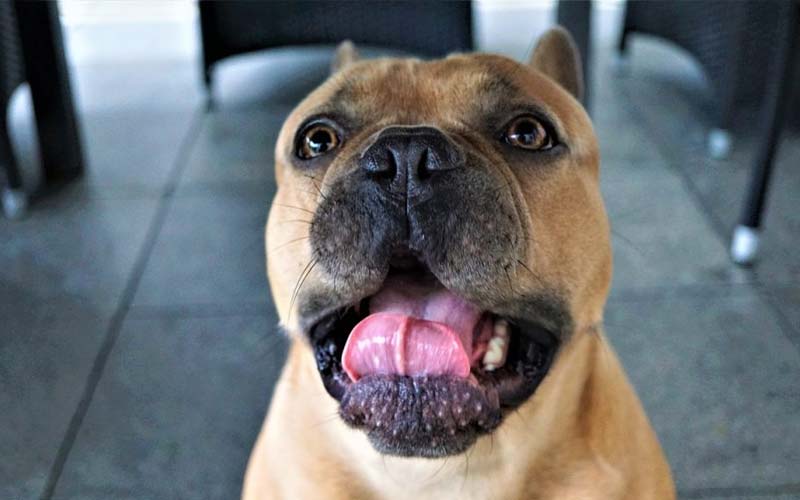
Conclusion Does My Dog’s Saliva Smell So Bad?
Bad-smelling saliva in dogs is more than just an unpleasant nuisance—it can indicate underlying dental or health issues that may require attention. By understanding the common causes, such as poor oral hygiene, diet, oral infections, and systemic health conditions, you can take proactive steps to prevent and address this issue. Regular dental care, routine veterinary visits, and incorporating safe chew toys into your dog’s life are key measures to maintain fresh, healthy saliva.
Don’t wait for symptoms to worsen. If your dog shows signs of persistent bad breath, bleeding gums, or changes in eating habits, consult your veterinarian for a thorough check-up. Early intervention can prevent more severe complications and improve your dog’s quality of life.
By establishing good oral hygiene routines and supporting your dog with appropriate products and veterinary care, you’ll be helping them enjoy better health, fewer odors, and a happier life. Make oral care a priority for your dog—it’s an investment in their well-being that will pay off in more than just fresher breath.